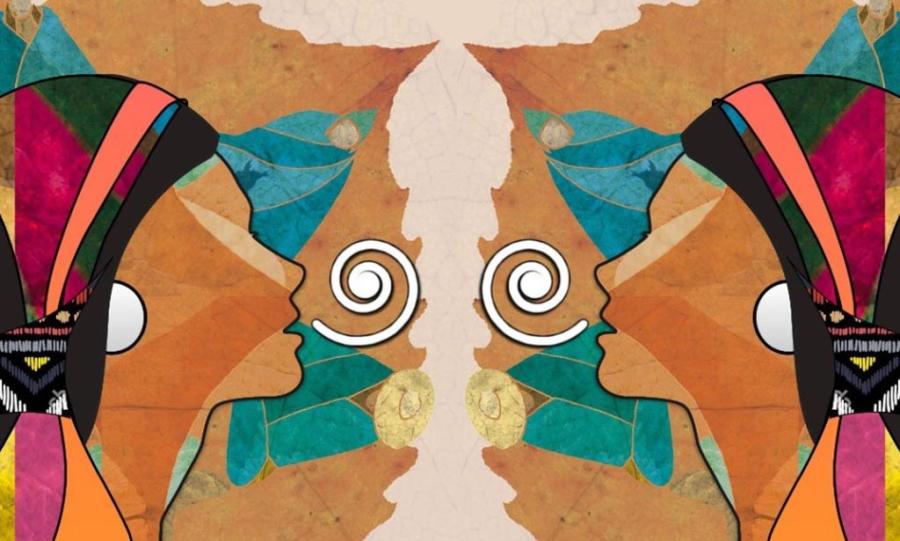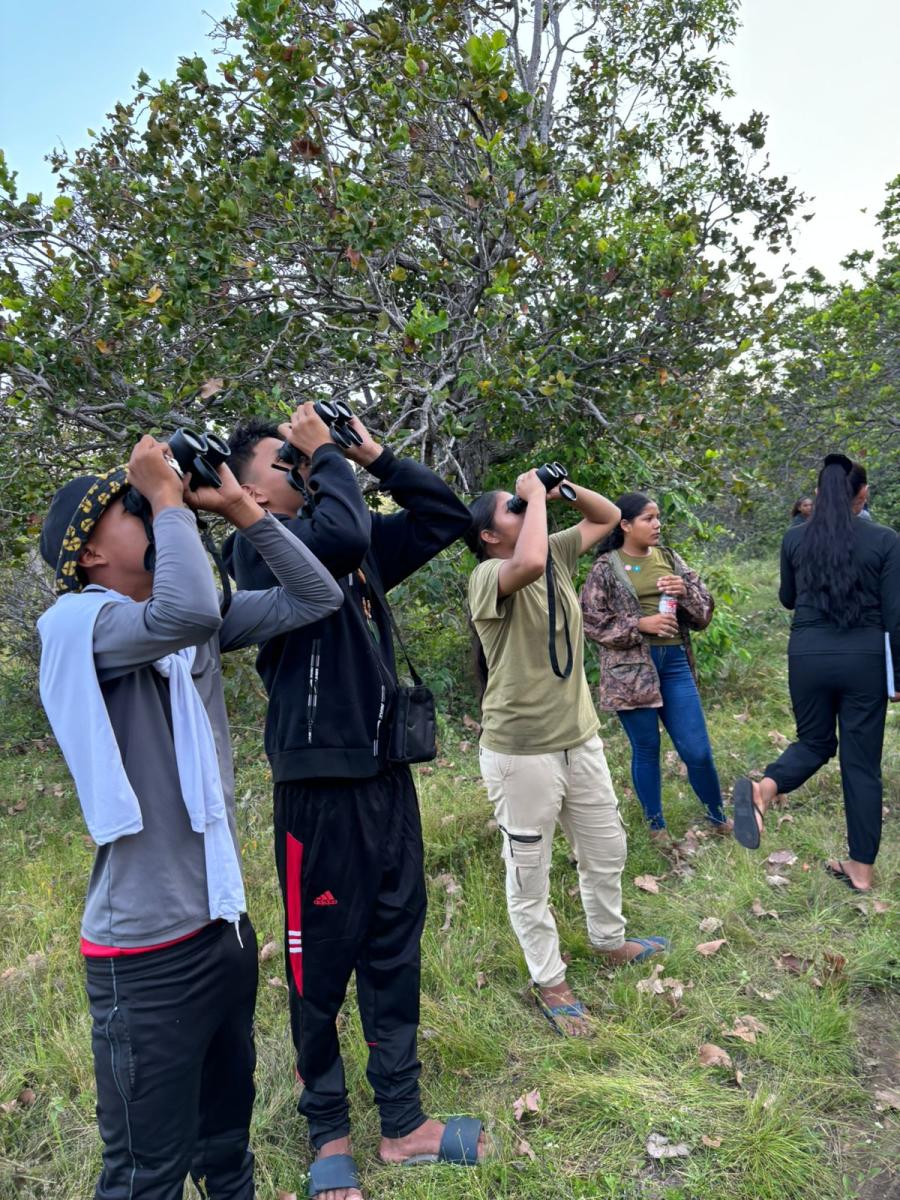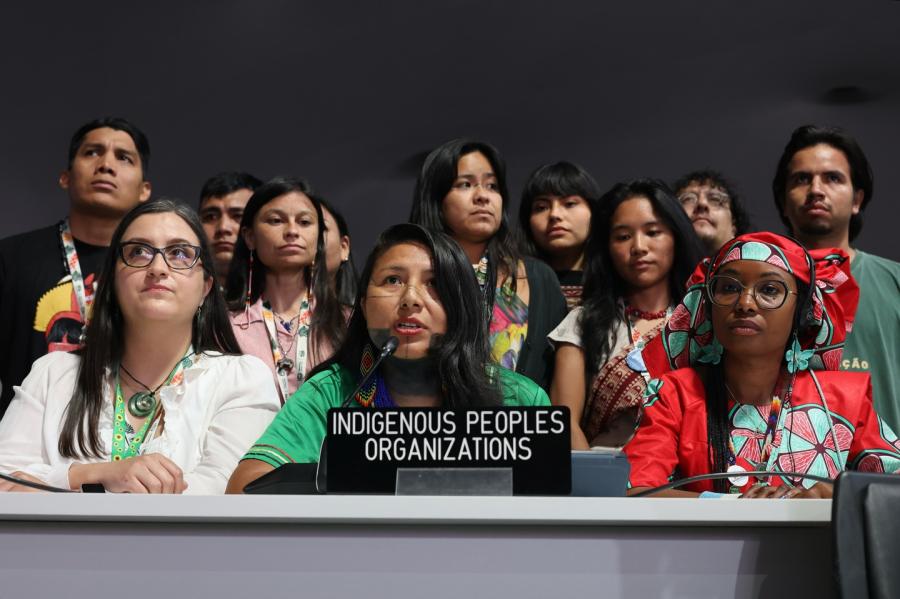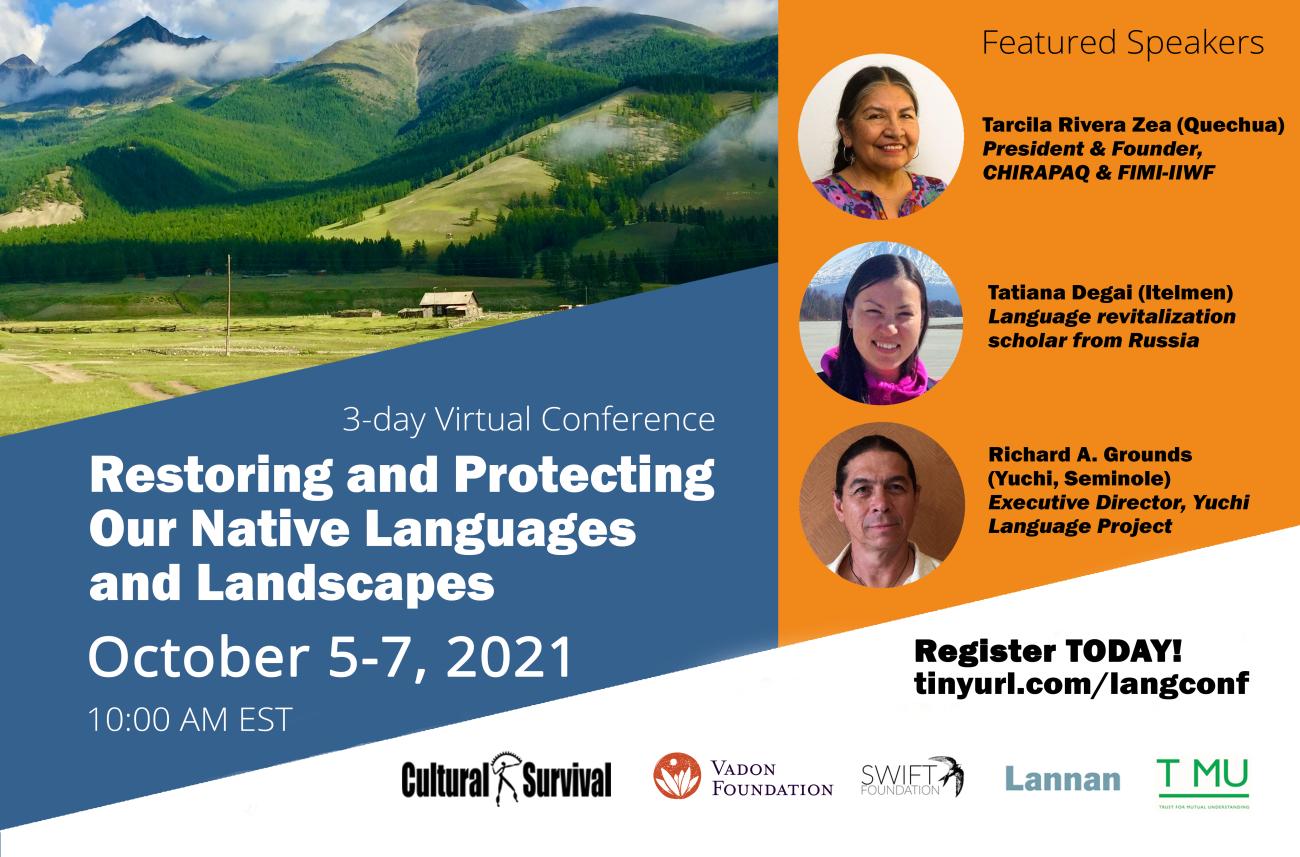
On October 5-7, 2021, in light of the upcoming United Nations International Decade of Indigenous Languages, Cultural Survival is pleased to announce its upcoming 3-day virtual conference, "Restoring and Protecting Our Native Languages and Landscapes.” This conference will equip individuals working at the community level with tools and best practices for revitalizing and strengthening Indigenous languages and the Traditional Ecological Knowledge carried within them.
Joining the conference will be Indigenous educators, practitioners, linguists, activists, and other leaders working in Indigenous language revitalization. Discussions will demonstrate why language revitalization and biodiversity protection are inextricably linked, and present methodologies, practical ideas, and solutions for the best ways to carry forward the work revitalizing and protecting language, culture, and land holistically. This virtual event is free and open to the public thanks to the generous support of the Lannan Foundation, Swift Foundation, Vadon Foundation, and Trust for Mutual Understanding. We encourage language activists and practitioners working in the field of language revitalization to join us.
All the conference content will be available in the original languages spoken by featured speakers on the SwapCard platform, which can be accessed both on the web and a mobile application. Registrants will receive a tech guide to help navigate the platform. There will be opportunities to interact with other attendees and speakers and build community and networks. Live panels will take place on Zoom with available simultaneous interpretation in Russian, English, and Spanish. For additional information please contact: adriana.hernandez@cs.org
The conference is now full, but you can still watch the panels on our facebook page and youtube channel.
Agenda
October 5 - Indigenous Languages as Contributors to the Preservation of Biodiversity
Traditional Ecological Knowledge is embedded in traditional practices and reflected in Indigenous languages, cultures, cosmovisions, and oral traditions. This knowledge and invaluable ways of being and knowing as it relates to the preservation of biodiversity and our ecosystems are at high risk of being lost when an Indigenous language disappears.
10:00 AM EST Opening ceremony and welcome
- Kaimana Barcarse (Kanaka Hawaiʻi”)
- Galina Angarova (Buryat)
- Adriana Hernández (Maya K’iche’)
- Richard Grounds (Yuchi, Seminole)
11:00 AM EST Panel 1: State of Indigenous Languages as Measure of Indigenous Rights
- Galina Angarova (Buryat), moderator
- Carla Fredericks (Mandan, Hidatsa, and Arikara)
- Kate Finn (Osage)
- Tarcila Rivera Zea (Quechua)
- Francisco Calí (Maya Kaqchikel)
1:30 PM EST Panel 2: Indigenous languages and Traditional Knowledge at the center of biodiversity conservation
- Bia’ni Madsa’ Juárez Lopez (Mixe/Ayuuk ja'ay and Zapotec/Binnizá), moderator
- Jeanette Armstrong (Okanagan)
- Marcus Briggs-Cloud (Maskoke)
- Miguel Jacanamejoy (Inga)
- Antonio Q”Apaj Conde (Aymara)
October 6 - Reclaiming and Strengthening our Indigenous Languages Beyond Our Homes: Methodologies and Practical Approaches
Discussions will present effective methodologies, practical ideas, and successful strategies for implementing best practices for carrying forward the work of reclaiming our languages, cultures, and lands in a holistic manner that affirms our traditional understandings.
10:30 AM EST Panel 3: Reclaiming and Strengthening our Indigenous Languages beyond our homes: methodologies and practical approaches
- Daisee Francour (Oneida), moderator
- Jennifer Weston (Hunkpapa Lakota, Standing Rock)
- Tatiana Degai (Itelmen)
- Juan Solano (Kañari)
- Richard Grounds (Yuchi, Seminole)
1:00 PM EST Interactive Session: Our Languages live: Stories of success and inspiration from Native Peoples
Hosted by Kaimana Barcarse (Kanaka Hawai'i)
October 7- Indigenous Women and the Power of Community Storytelling
Indigenous women play a critical role in the transmission of Traditional Ecological Knowledge through ceremonies, medicinal plants, dances, arts, and proper relations to the land, and are often expressed through language and storytelling. Their leadership in the transmission of Indigenous languages to future generations is essential for the well-being of Indigenous communities and the environment both now and in the future.
10:00 AM EST Keynote presentation: Indigenous women and the power of community storytelling
Tarcila Rivera Zea (Quechua)
10:30 AM EST Panel 4: Indigenous Women in Language Retention and Revitalization
- Avexnim Cojtí (Maya K’iche’), moderator
- Lucy Mulenkei (Maasai)
- Halay Turning Heart (Yuchi, Seminole)
- Rosa Palomino (Aymara)
- Vanessa Farrelly (Pertame Southern Arrernte)
- Valentina Sovkina (Saami)
1:00 PM EST Panel 5: Media and storytelling promoting and revitalizing Indigenous languages
- Shaldon Ferris (KhoiSan), moderator
- Socorro Cauich (Maya)
- Dulma Batorova (Buryat)
- Toroga Denver Breda (Khoikhoi)
- Vianna González (Maya K’iche’)
Featured Speakers
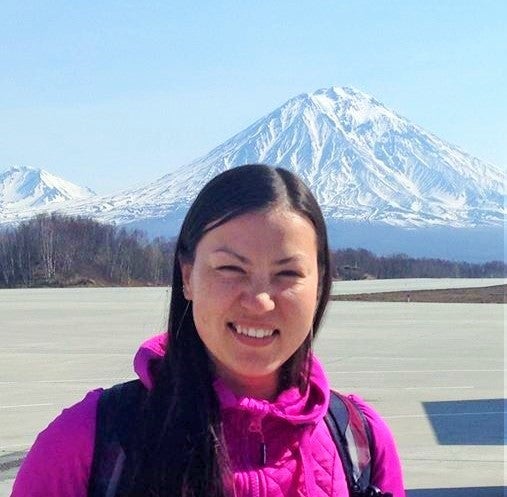
Tatiana Degai (Itelmen). Tatiana Degai is a scholar from the Kamchatka peninsula on the Pacific coast of Russia. She received her Ph.D. at the University of Arizona in the American Indian Studies Program, minoring in Linguistics. Tatiana’s Ph.D. research focused on language revitalization possibilities in the Russian context focusing on her native Itelmen language. Tatiana is a Professor at the University of Victoria and an Affiliate Assistant Professor of Arctic Indigenous Studies at the ARCTICenter, University of Northern Iowa. Tatiana maintains a strong connection with the Council of Itelmens of Kamchatka “Tkhsanom,” working on language and culture revitalization and community well-being.
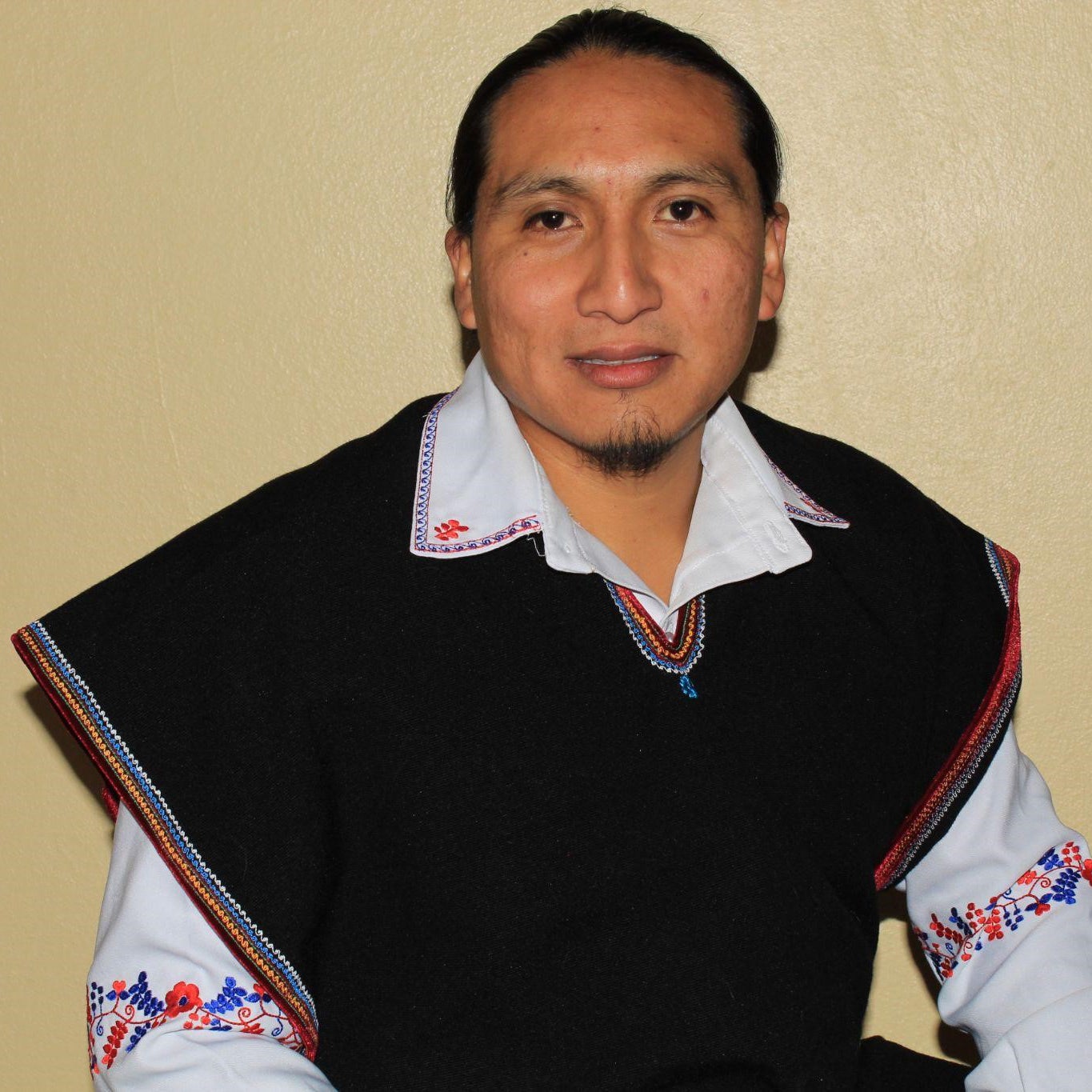
Juan Carlos Solano (Kañari) is the Coordinator of the Research Unit of the Quilloac Bilingual Intercultural Pedagogical Institute in Ecuador. Also, he is the Coordinator of the project "Revitalization of the ancestral Kichwa language." He is a founding member of the Yanantin cultural foundation and a founding member of the front of artists and cultural managers of the province of Cañar. Juan manages the first functional interactive game on a mobile platform in the ancestral Kichwa language.
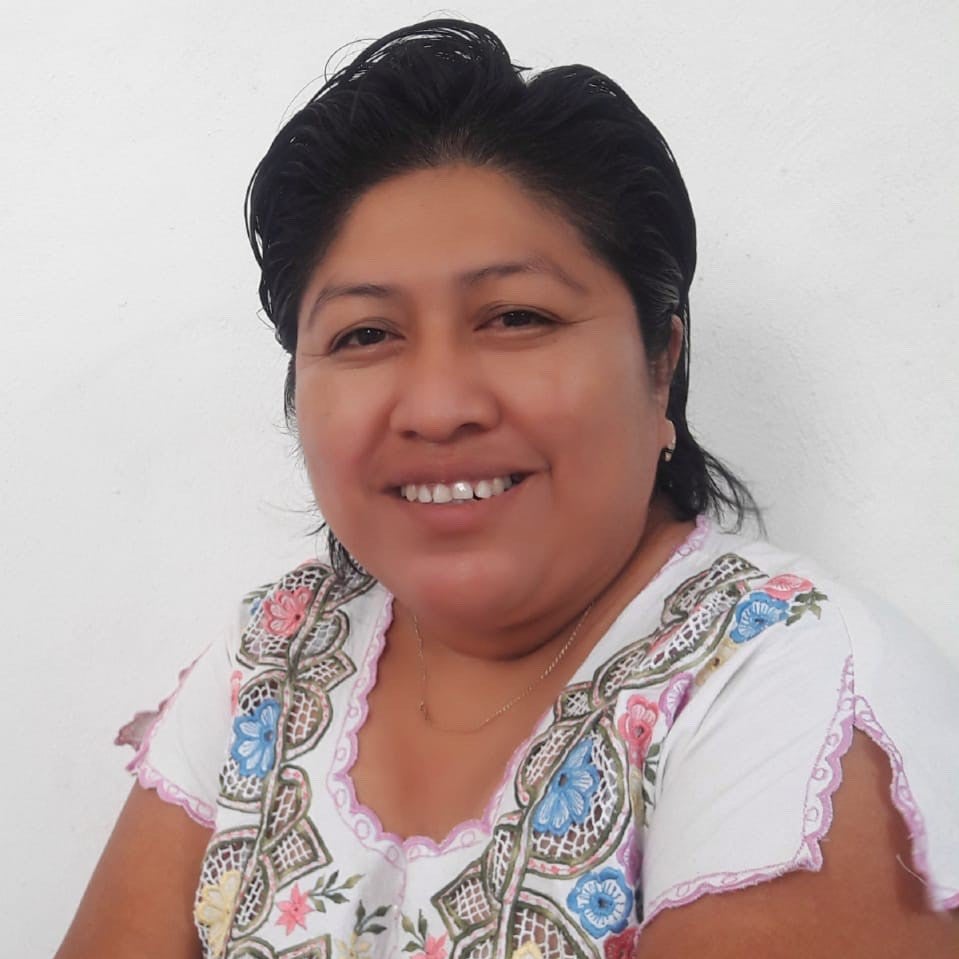
Socorro Cauich (Maya) holds a degree in administrative informatics. She is a teacher in the Mayan language in Mexico. She participated in the women's gathering "U meyaj ko’olel utia’al u múuk’ankúunsal Maaya T’aan,” focused on the revitalization of the Mayan language. She has received training on the "Direction to the Revitalization of minority languages," carried out by the Garabide Organization in Euskal Herria, in the Basque Country. She collaborates at Radio Yúuyum and she is a member of the Committee of Yúuyum A.C., promoting the revitalization of the Mayan language.
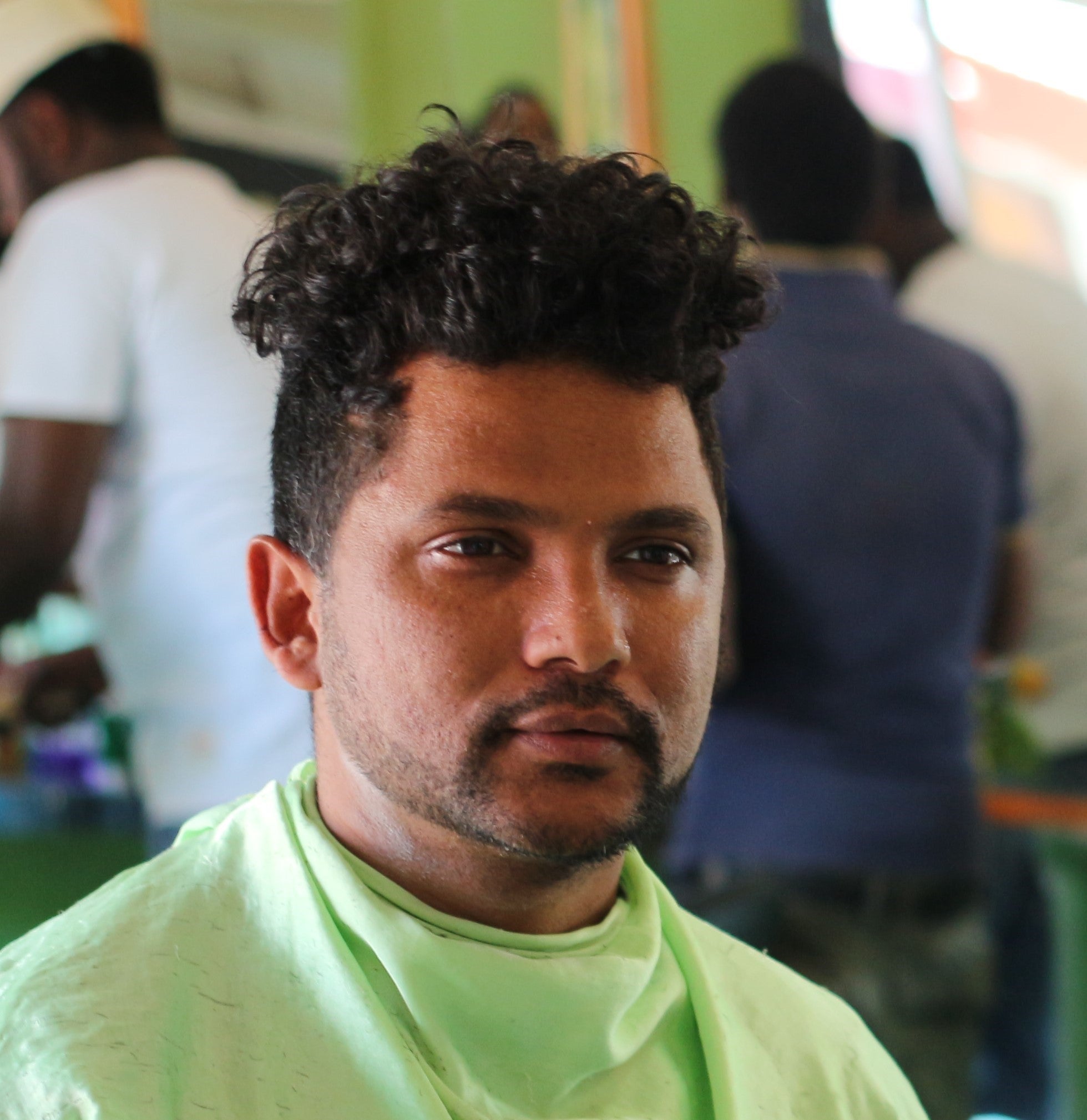
Toroga Denver Breda (Khoihoi) is a Hui!Gaeb/Cape Town-based Khoikhoi First Nations gowab ╪Khaikhai -ao-I/language revitalizer, karetsanas-ao-i/ poet and kuwiri/disruptor who through his kurus/art challenges the kakapusa/ erasure of South Africa’s First Nation languages and the stories of his abogan/ancestors. Toroga compiled the Khoikhoi language reader, and he also created a book of poetry “Kakapusa,” speaking to the invisibility and kakapusa/erasure of Khoikhoi First Nation communities in South Africa.
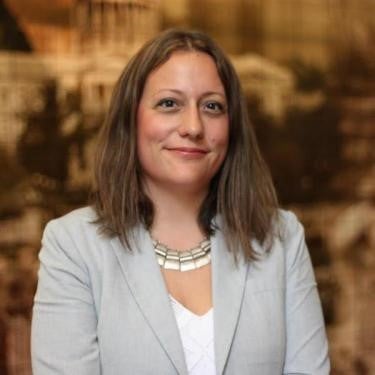
Carla F. Fredericks (Mandan, Hidatsa, and Arikara) is the CEO of The Christensen Fund and is a seasoned leader in sustainable economic development, human rights, business and finance, Indigenous Peoples law, and federal Indian law. Carla Fredericks’ core work has focused on the realization of Indigenous Peoples’ human rights. She has served in several capacities, including providing core support to the UN Special Rapporteur on Rights of Indigenous Peoples Victoria Tauli-Corpuz for the entirety of her two terms, serving as of counsel to the Standing Rock Sioux Tribe in bringing their opposition to the Dakota Access Pipeline to international fora and financial institutions, assisting the Maya Peoples of Southern Belize in implementing the affirmation of their land rights and developing a model for Indigenous-driven consent processes and remedy.
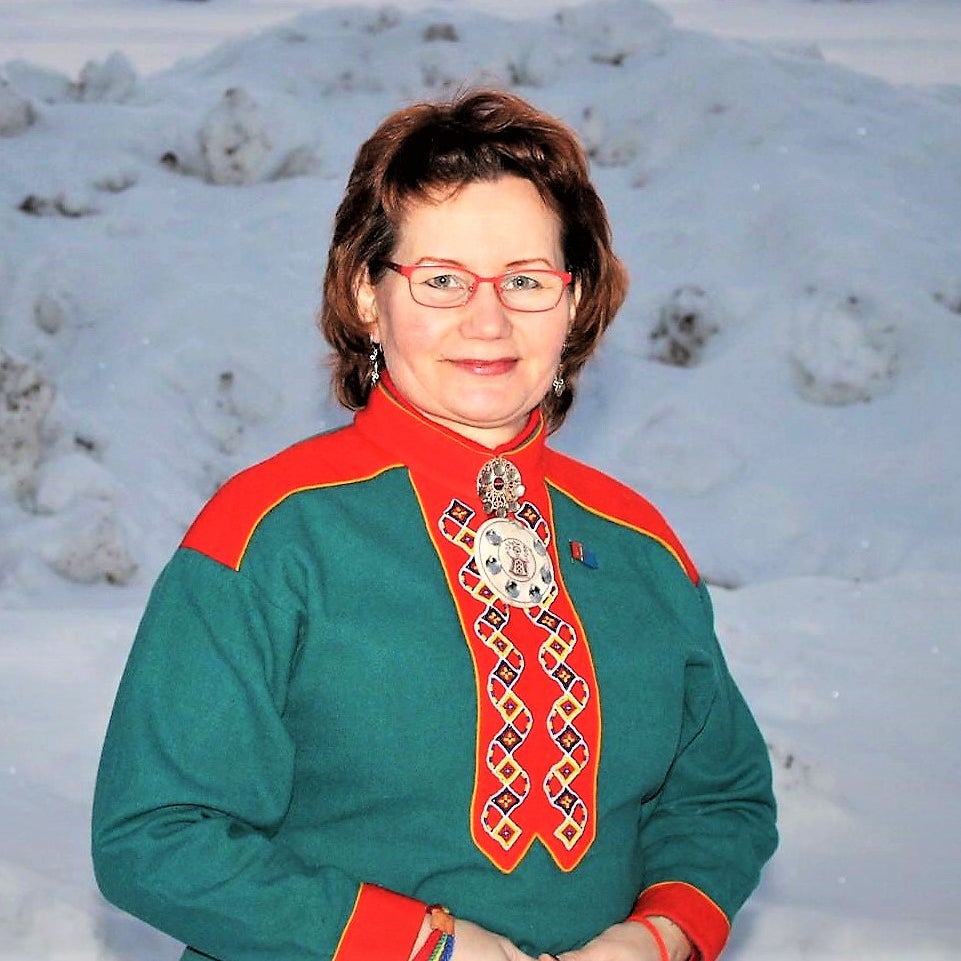
Valentina Sovkina (Saami), an Indigenous woman from Russia, was born as a reindeer herder. She graduated from the Murmansk State Pedagogical Institute with a degree in Preschool Pedagogy and Psychology. As head of the Kola Sami Radio, she organized an online native language training for Saami people. Currently, she is passionate about documentary films and produced the film "Tsyya nita/Well Done Girl,” about a woman who revitalized her native language by speaking it with her granddaughters.
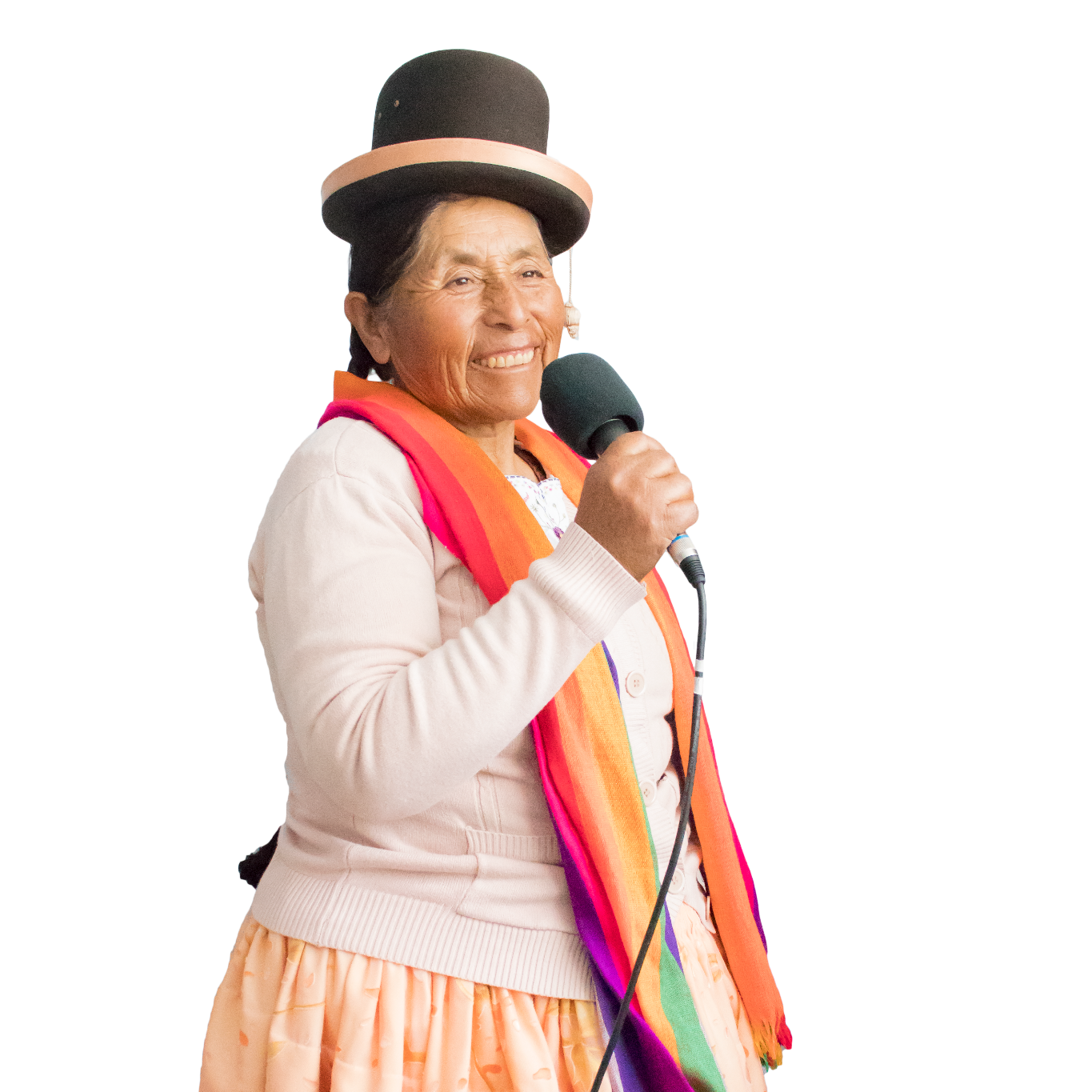
Rosa Palomino (Aymara) is a human rights activist, and Vice President of the Network of Indigenous Communicators of Peru. She contributed to promoting the First Great Congress of Aymara and Quechua Women of Puno, in the district of Chucuito, Puno, which brought together more than 5,000 Indigenous women from the region. In 2013, she organized the Grand Parliament of Aymara Women of Abya Yala, on the occasion of International Women's Day, where more than 500 Aymara women from Peru, Bolivia, and Chile gathered. She has hosted the radio program "Wiñay Panqara" which means “always blooming” for more than 33 years.

Kate Finn (Osage) is the Executive Director of First Peoples Worldwide. Her expertise concerns articulating how the impacts of development in Indigenous communities must be addressed at all levels of business and investment to build healthy Native economies and communities for generations. She was the inaugural American Indian Law Program Fellow at the University of Colorado Law, where she worked directly with Tribes and Native communities. She serves on the boards of the First Nations Community Financial and Unified Solutions Tribal Community Development Group.
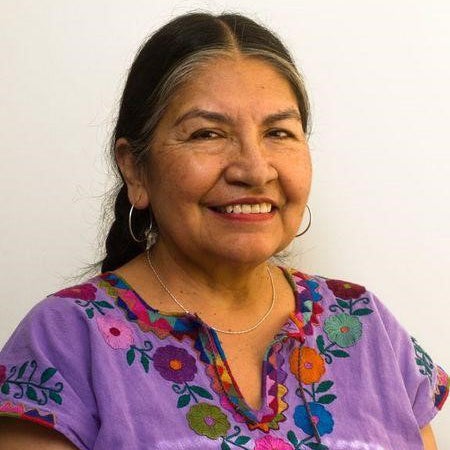
Tarcila Rivera Zea (Quechua) is one of the most recognized Indigenous activists in Peru and the world. For more than 40 years, she has been defending the rights of Indigenous Peoples through the organizations CHIRAPAQ and FIMI-IIWF, of which she is President and Founder. She received recognition from UNICEF, Ford Foundation, Sacred Fire Foundation, and the Ministry of Culture of Peru for her distinguished career and valuable contributions to the promotion and defense of the rights and cultures of Indigenous Peoples. She held the position of the United Nations Permanent Forum on Indigenous Issues Expert from 2017 to 2019. Currently, she is a member of the International Committee for the Futures of Education of UNESCO and Continental Coordinator of the Continental Liaison of Indigenous Women of the Americas (ECMIA) for the period 2020 to 2023, of which she is also the Founder.

Miguel Jacanamejoy Miticanoy (Inga) was born in the San Miguel de la Castellana, in Putumayo, Colombia. He has a degree in linguistics and Indigenous education. Since he was a child, he began leadership for the collective defense of the community and the territory. At the age of eighteen, he was appointed as the council’s authority. He also served as an Inga langauge teacher.
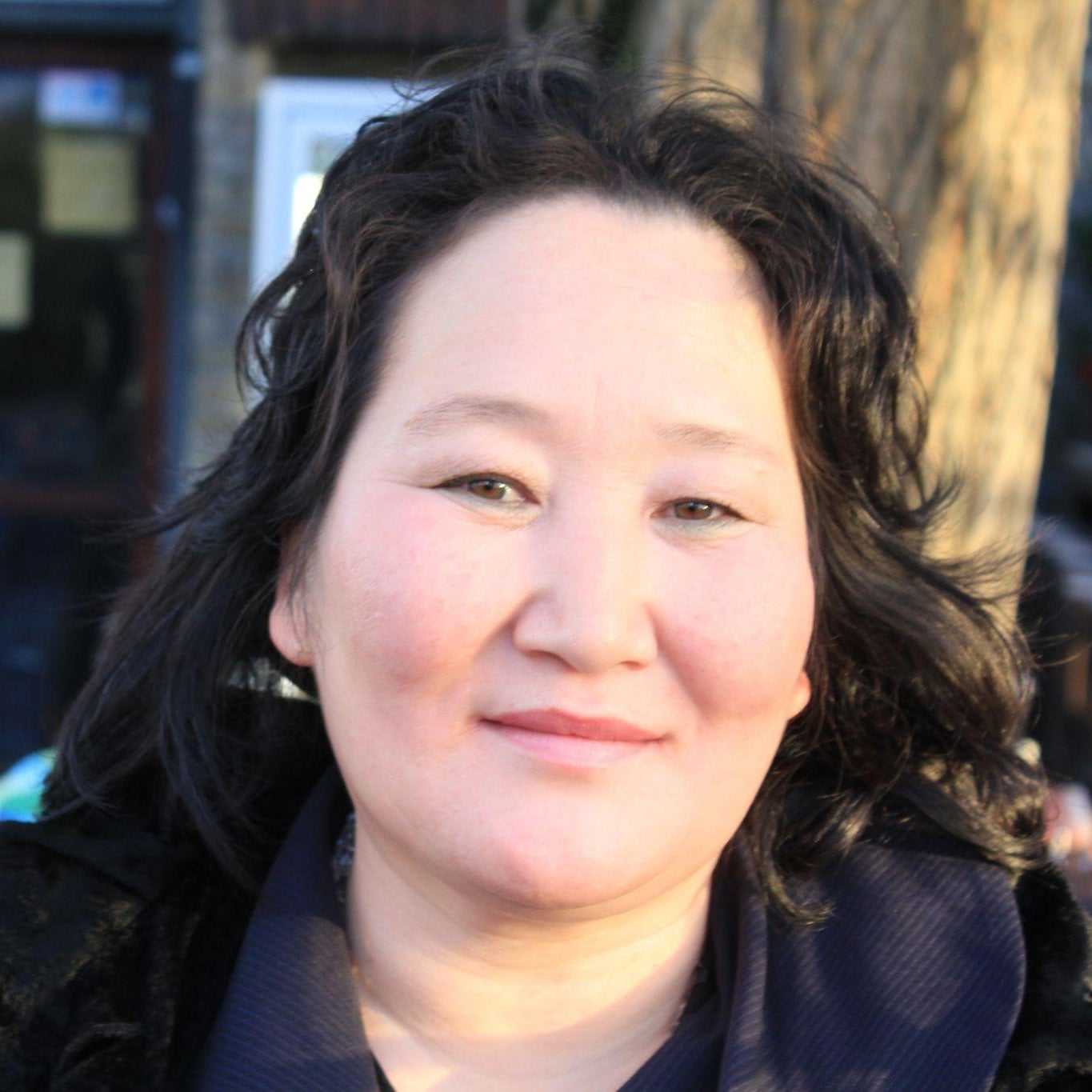
Dulma Botorova (Buryat) is from Buryatia, Russia. Dulma graduated from the Faculty of Philology of the Buryat State Pedagogical Institute. She is working on the Evenk and Buryat language revitalization and is the Founder and Editor of the newspaper "Nyutag Helen / Dialects" ("Local dialect") since 2015. Dulma is one of the broadcasters at Radio for the Rights of the World's Indigenous Peoples, which broadcasts programs on 1,600 radio stations around the world.
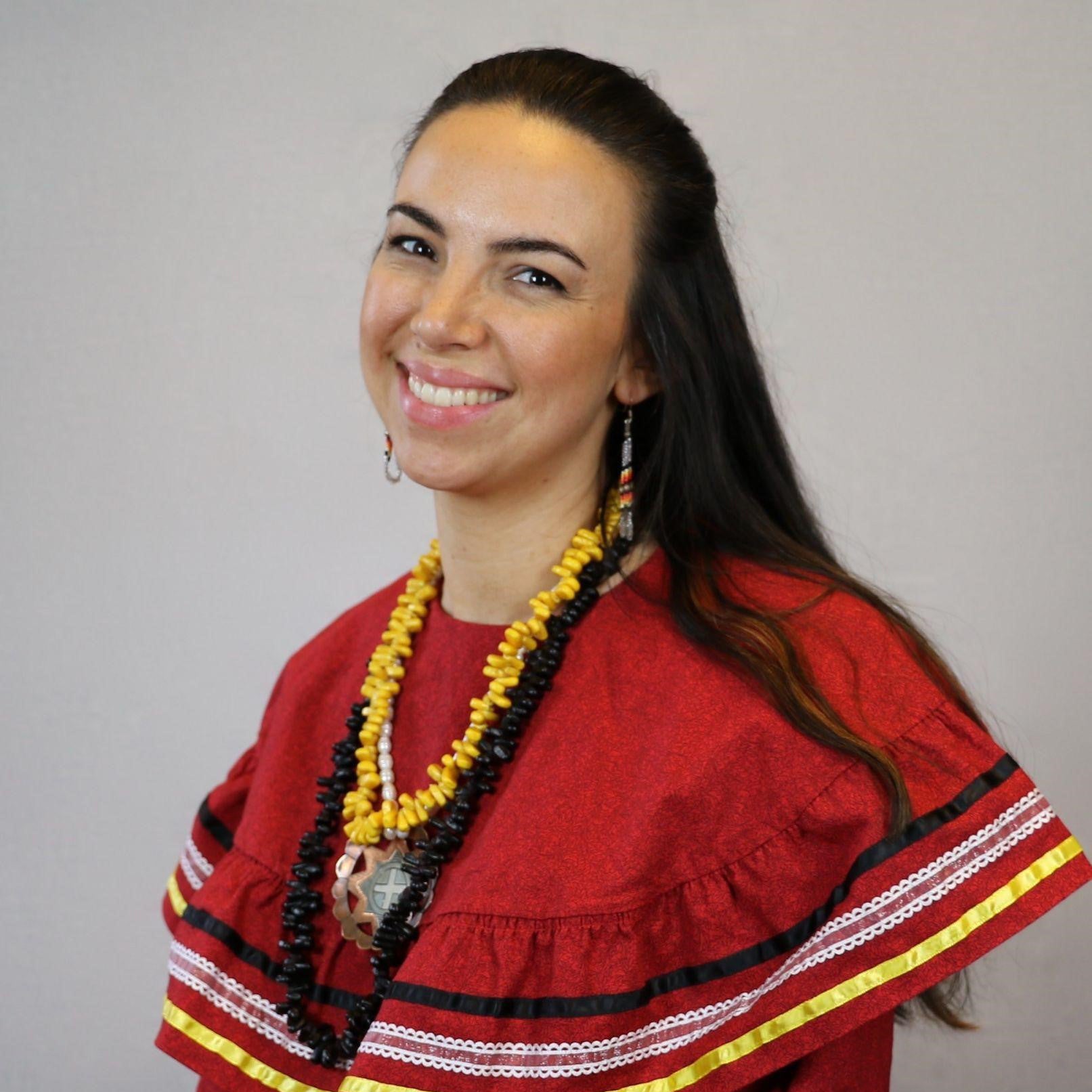
Halay Turning Heart (Yuchi, Seminole) has over 20 years of practical experience in the field of Indigenous language revitalization, working with Elders and teaching children. She established a Yuchi language immersion school in 2018 as part of the Yuchi Language Project, which serves as a model program for visitors from around the world. Halay is raising her three young children as the first zOyaha (Yuchi) speakers in four generations. From the womb, she has only spoken to them in Yuchi, a language isolate known as one of the world’s most ancient languages. Halay is the 2021 NDN Changemaker Fellow representing the Great Plains region, USA. She is published in the field of language revitalization and has a Linguistics Degree from Dartmouth College. She works in local, national, and international arenas to promote and mentor organizations in reclaiming Indigenous lifeways.
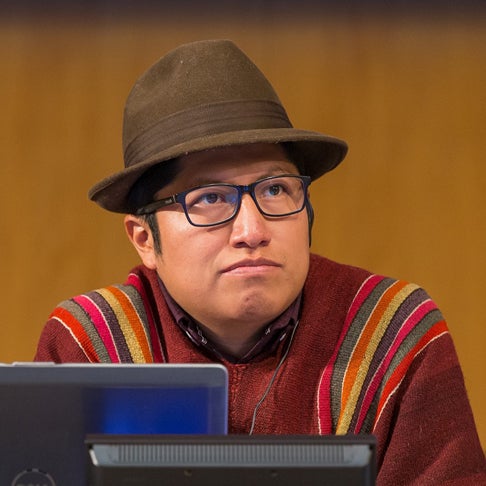
Q”apaj Conde Choque (Aymara) is the Associate Programme Management Officer in the Peoples and Biodiversity Unit at the Secretariat of the Convention on Biological Diversity. He previously served as Indigenous Fellow in the World Intellectual Property Organization (2013–14) and Legal Officer in the Centro de Estudios Multidisciplinarios-Aymara (2016–17). In addition, as a member of the Red de Jóvenes Indígenas-LAC, he served as a Co-chair of the Global Indigenous Youth Caucus (2017-18). Q”apaj studied law at the Universidad Mayor de San Andrés. He holds a Masters of Law from the University of Seville and a Doctor of Juridical Sciences from the Indigenous Peoples Law and Policy Program at the University of Arizona.
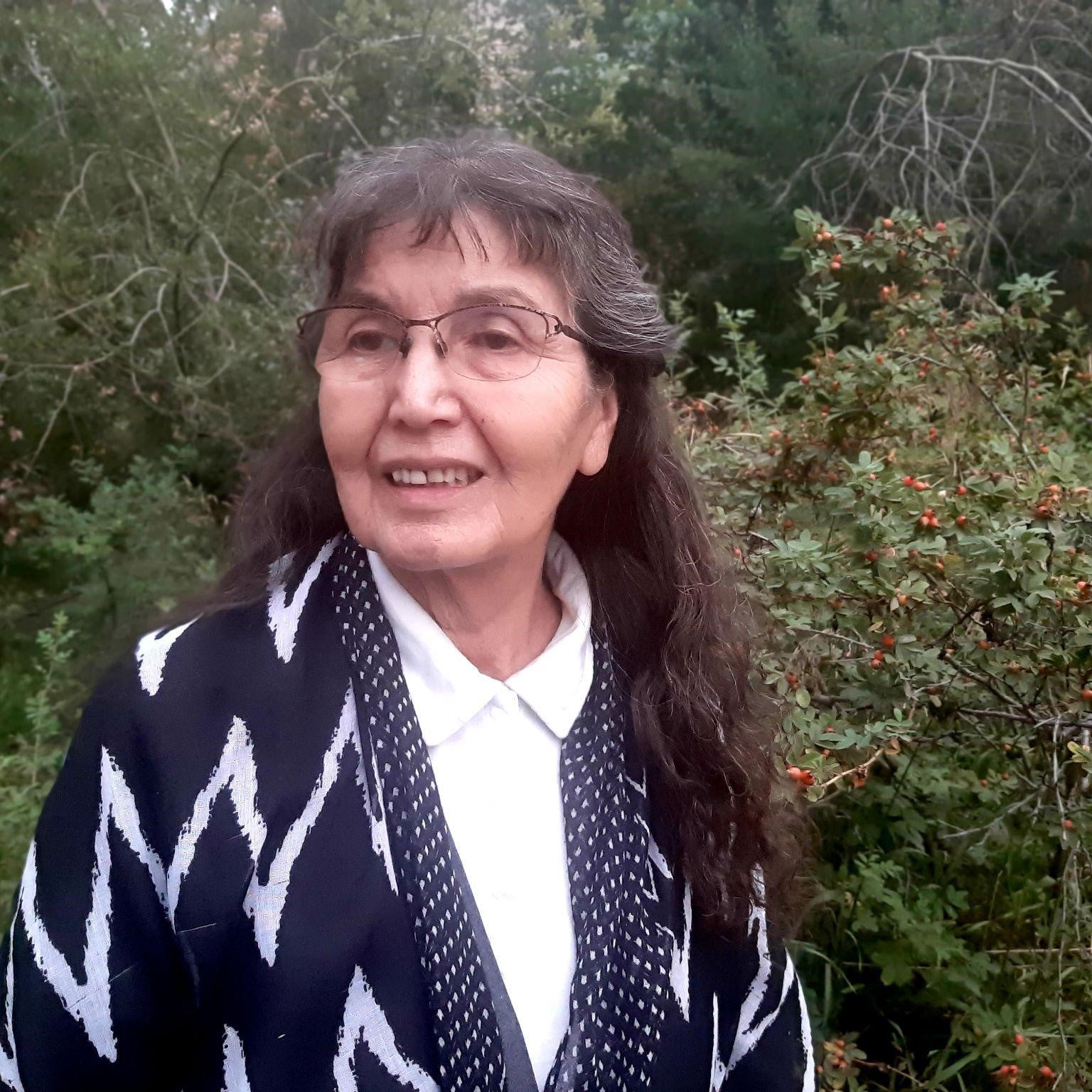
Jeannette Armstrong, Ph.D. (Syilx Okanagan), Associate Professor in Indigenous Studies and Canada Research Chair in Syilx Okanagan Philosophy. As an award-winning writer and activist, novelist, and poet, Jeannette has always sought to change deeply biased misconceptions related to Indigenous Peoples. She is the recipient of the George Woodcock Lifetime Achievement Award for Literature. She collaborates with Salish-speaking groups to re-establish Indigenous languages, historical relationships, food resource ceremonies through gatherings, trading, and protection of water and land practices. She is a recipient of the Eco Trust USA Buffett Award in Indigenous Leadership and serves on Canada’s Aboriginal Traditional Knowledge Subcommittee of Committee on the Status of Endangered Wildlife in Canada (COSEWIC). She was recently named in the Class of 2021 as a Fellow in the Royal Society of Canada.
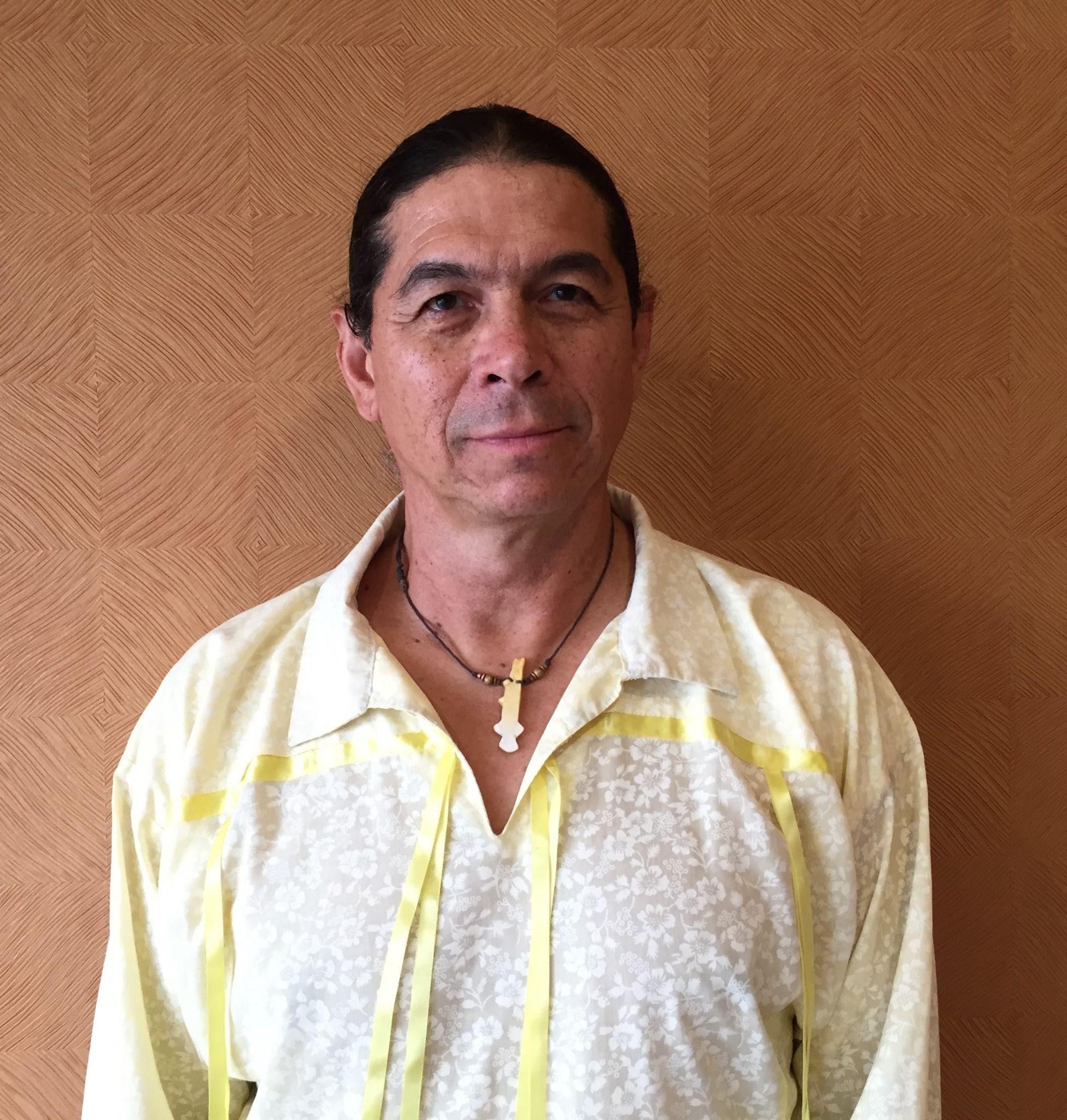
Richard A. Grounds, Ph.D., (Yuchi, Seminole) is an enrolled member of the Mvskoke Nation of Oklahoma of Yuchi and Seminole heritage. He is Executive Director of the Yuchi Language Project based in Sapulpa, Oklahoma, working with Yuchi Elders in creating new fluent speakers using immersion language methods. Under his leadership, the Yuchi Language Project was recognized as the Outstanding Host for 2017 by the Tula Global Alliance for working with numerous international visitors over the years sponsored by the U.S. State Department, including Uighurs, Taiwanese, Mongolians, Brazilians, Indonesians, among numerous others. After completing his Ph.D. in the History of Religions at Princeton Theological Seminary, he taught at St. Olaf College and in the Anthropology Department at the University of Tulsa.
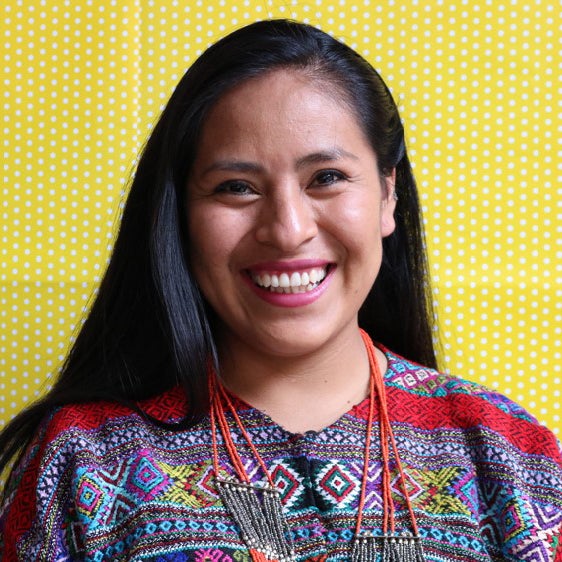
Vianna Lucía González Ajiataz (Maya K’iche’) was born in San Francisco la Union, Quetzaltenango, Guatemala. She has a bachelor's degree in Sociolinguistics from Mariano Gálvez University in Guatemala. Since 2012, she began to teach her mother tongue at the Ixkik 'Museo del Traje Maya’. She is Co-founder of the Ki'kotemal TV project in conjunction with a group of young volunteer activists for the promotion and revitalization of the Mayan languages. She worked as a Language Facilitator in the K'iche 'Linguistic Community of the Academy of Mayan Languages of Guatemala.

Vanessa Ngala Farrelly (Pertame Southern Arrernte) is a young person living in Alice Springs (Mparntwe) on Central Arrernte Country in Australia. She is currently employed by the Batchelor Institute of Indigenous Tertiary Education as the Pertame Research Officer within the Centre for Australian Languages and Linguistics (CALL). She is also a Master’s research student within the Batchelor Institute Post-Graduate program. Vanessa has four years of experience coordinating the Pertame Language Revival Program, working with her Elders and community to organize on-country language camps, school holiday programs, in-school classes, and community language lessons. Vanessa is a partial speaker of Pertame and has been coordinating the only active Master-Apprentice Program (MAP) in Australia after training in language immersion from the Global Indigenous Language Caucus in New York. In 16 months, the Pertame MAP has produced four semi-fluent speakers, ran 107 Pertame MAP immersion sessions totaling over 400 hours, and 5 on-country immersion camps. A total of 7 Pertame apprentices, 5 elders, 60 children, and 40 adults have been engaged in teaching and learning Pertame.
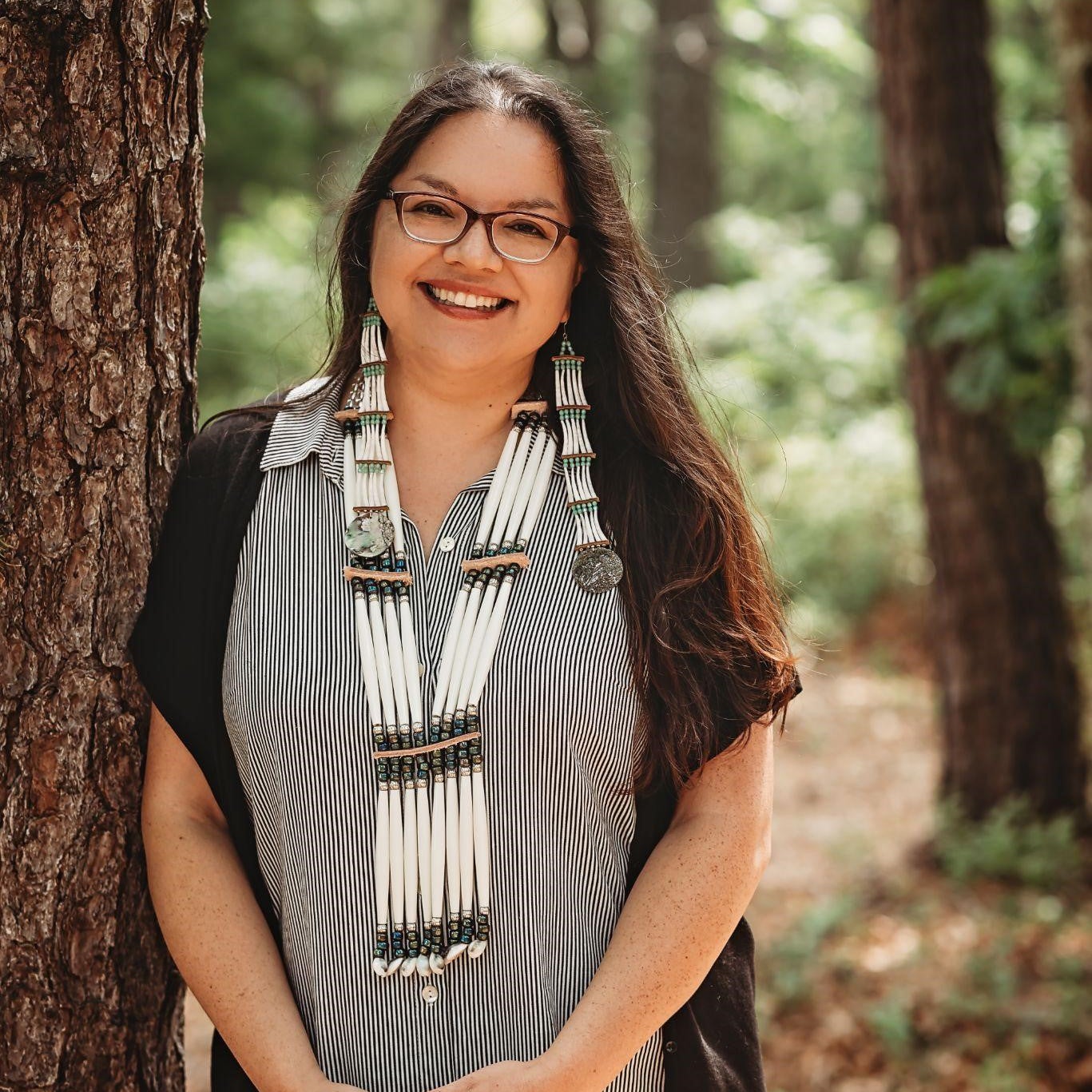
Jennifer Weston (Hunkpapa Lakota, Standing Rock) is Co-director at Lakota Well-being Project. She is a writer, producer, nonprofit leader, and fundraiser who has worked for the past 25 years with Tribal community programs focused on environmental justice, Indigenous education, and language revitalization. Recently, she directed the Wôpanâak Language Reclamation Project (2012-2021) before joining Lakota Well-Being Project organizing in fall 2020. From 2008-2012, Weston managed Cultural Survival’s Endangered Languages Program in Cambridge, MA, building a network among 350+ Indigenous communities, serving as researcher and producer for the 2011 documentary "WE STILL LIVE HERE: Âs Nutayuneân," and the film’s companion website, OurMotherTongues.org. Weston also worked as an associate producer on the PBS documentary series "WE SHALL REMAIN," and as a correspondent for the Lakota Nation Journal. As a student and staffer at Brown University, she developed Native studies curricula and community programs to support Native student retention and worked as a research assistant on Native youth projects focused on cultural resilience.

Sʔím̓laʔxʷ Michele Johnson PhD (Okanagan) is Executive Director, lead activist, and teacher at the SYILX LANGUAGE HOUSE. She is a member of Okanagan Indian Band, related to Simlas and Richters with Syilx and Suyápix (Euro) ancestry. She is certified n̓łəqʷčin̓ (high-intermediate) by Sʕam̓tíc̓aʔ Peterson and Chris Parkin of the Salish School of Spokane (Paul Creek). She spearheaded the n̓ql̓xʷčn̓iłxʷ "language house" model during her PhD & post doctorate research in Indigenous language revitalization at UBC and SFU. When not manifesting language, fundraising or tobogganing in N̓syilxčn̓ with toddlers she can be found hiking, mountain biking, cross country skiing, and playing guitar.
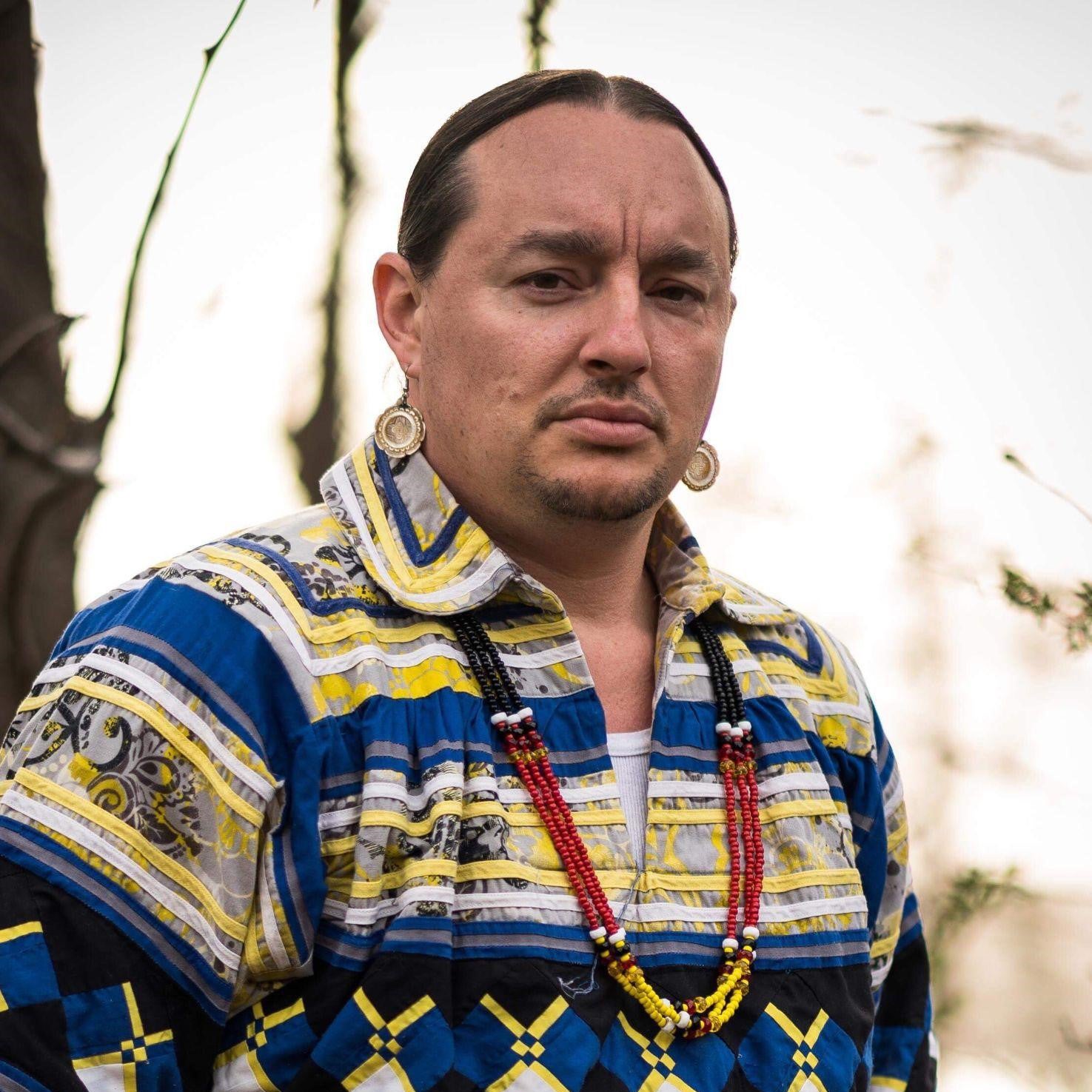
Marcus Briggs-Cloud (Maskoke) is a language revitalizer, scholar, musician, and co-director of Ekvn-Yefolecv Maskoke ecovillage. A graduate of Harvard Divinity School, he is currently a doctoral candidate in interdisciplinary ecology at the University of Florida where his work intersects ecology, genetics, liberation theology, and linguistics. Marcus received awards for his Maskoke hymn album Pum Vculvke Vrakkuecetv, and in 2012 served as composer/choir director for the Vatican canonization liturgy with Pope Benedict XVI for Saint Kateri Tekakwitha. He is partnered to Tawna Little (Maskoke) and they have two children, Nokos-Afvnoke and Hemokke, with whom Marcus enjoys speaking exclusively in the Maskoke language.
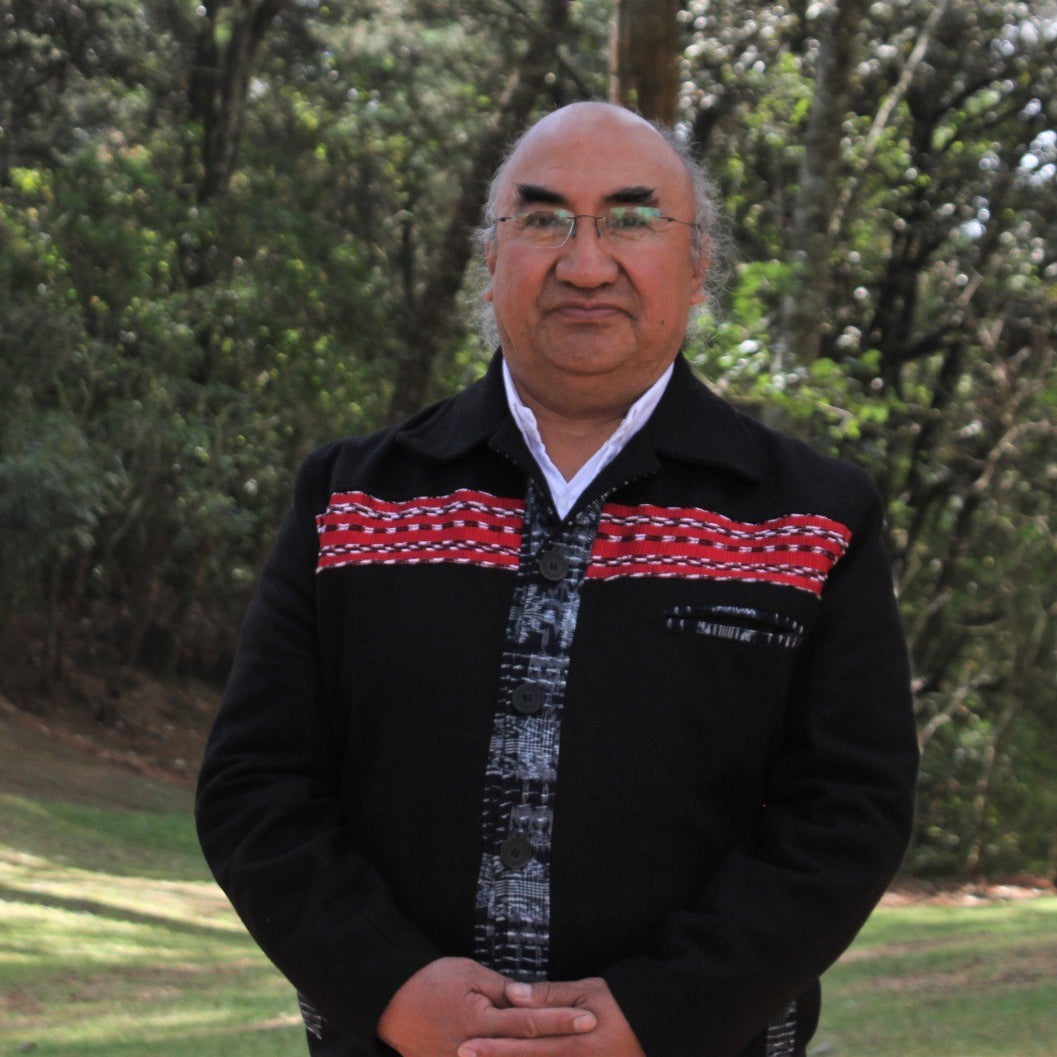
Francisco Calí Tzay (Maya Kaqchikel), Special Rapporteur on the Rights of Indigenous Peoples. Francisco Calí Tzay was the Ambassador of Guatemala to the Federal Republic of Germany and was President of the Committee for the Elimination of all Forms of Racial Discrimination (CERD). He served as Director of Human Rights at the Ministry of Foreign Affairs of Guatemala, as a former member of the Presidential Commission against Discrimination and Racism against Indigenous Peoples in Guatemala (CODISRA), and served as the former President of the National Reparation Program for Victims of the Internal Armed Conflict.
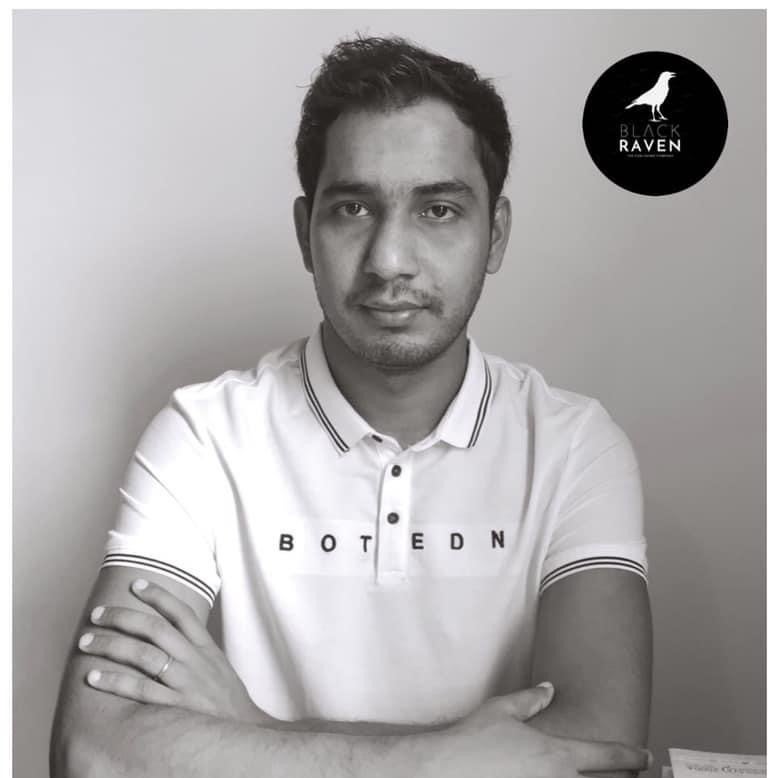
Mayyu Ali (Rohingya) is the author of "EXODUS: Between Genocide and Me." He is a Rohingya poet, human rights activist, and humanitarian worker. He has written Op-eds for The New York Times, The Washington Post, TIME, Financial Times, Asia Times, CNN, The Independent, Al Jazeera, Dhaka Tribune, etc. His poems were published in Modern Poetry in Translation, World Literature Today, The Best English Magazine, The light of English Magazine, etc. He is the co-founder and editor at Art Garden Rohingya. Currently, his friends and he are doing a project to revive and preserve the Rohingya language and culture.

Angela Butler (Eyak) lives in Cordova, Alaska, the traditional homeland of the dAXhunhyuu (Eyak). She is from the Raven Clan and has been happy to raise her three children in their ancestral land. She earned her Masters of Public Administration from Kent State University and has been working for her Native community since 2008. First with the Native Village of Eyak then The Eyak Corporation and currently with Native Conservancy. Angela has been working to preserve and revitalize the Eyak language and culture.
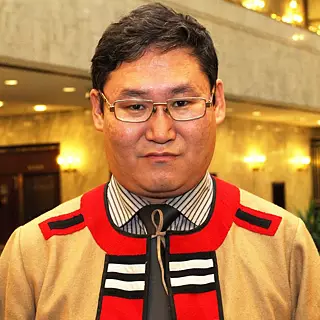
Vyacheslav Shadrin (Yukagir) is from Sakha Republic (Yakutia). He was the first person in Russia to receive the Paul K. Feyerabend Foundation Award. He worked as a teacher and later director of the Tekki Odulok Yukaghir national school in the village of Nelemnoye, Upper Kolyma Ulus, Sakha Republic (Yakutia). Today, Vyacheslav Shadrin is a research fellow at the History of Yakutia and Arctic Research Departments of the Institute for Humanities Research and Indigenous Studies of the North with the Siberian Branch of the Russian Academy of Sciences. His research interests focus on the history and ethnography of Indigenous minorities of the Russian North, climate change, appraising the value of ethnological work, and the rights of Indigenous Peoples. He is Chamadanidzha (Paramount Chief), Chairman of the Council of Elders of the Yukaghir people, and Vice President of the Sakha Republic (Yakutia) Association of Indigenous Minorities of the North.
Moderators:
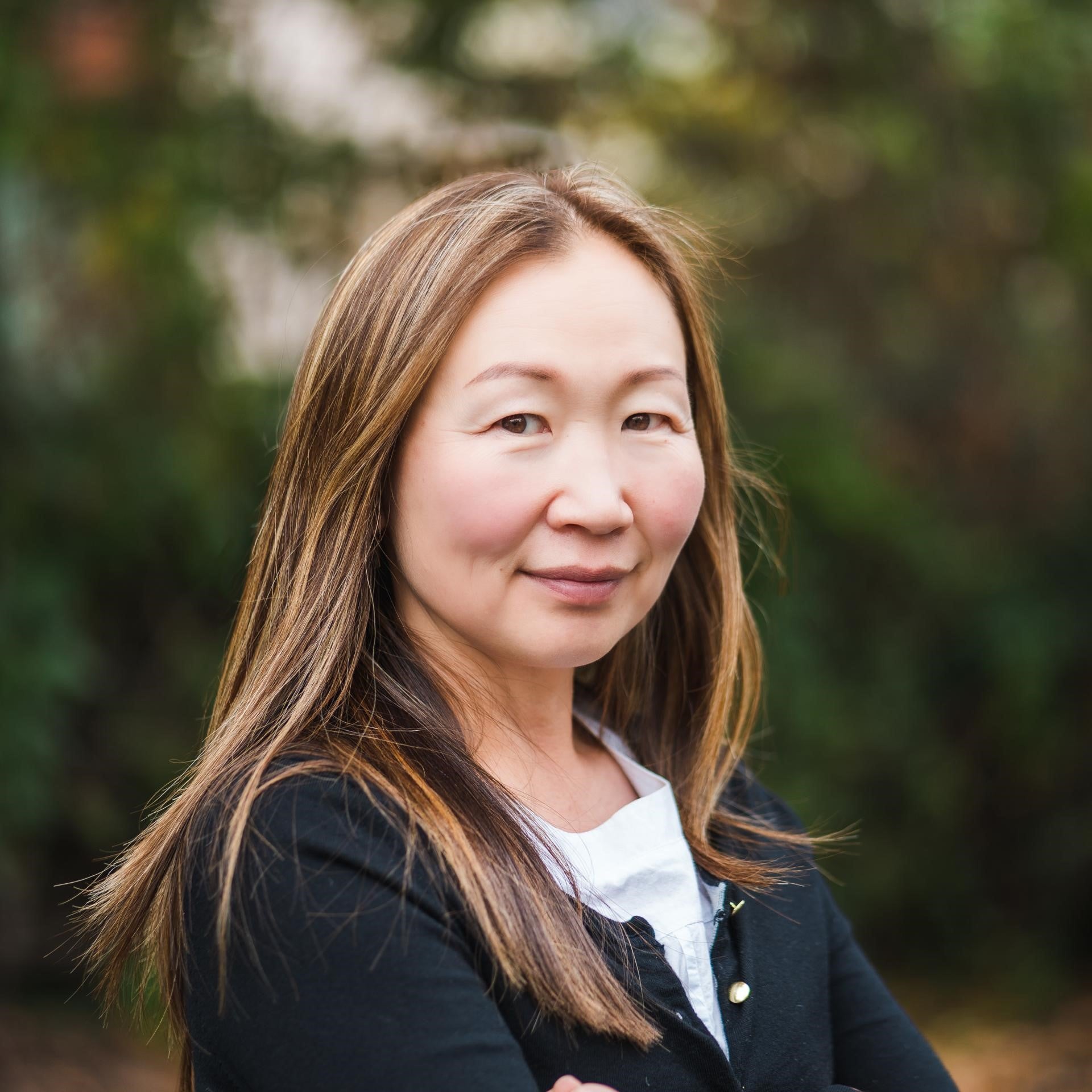
Galina Angarova (Buryat) is the Executive Director of Cultural Survival. Galina comes to Cultural Survival after serving as a program officer at the Swift Foundation, and prior to that, as policy and communications advisor for Tebtebba. She has represented the Indigenous Peoples’ Major Group at the UN on issues such as the Sustainable Development Goals and the Post-2015 Development Agenda and has led Indigenous experts to review safeguards for Indigenous Peoples for the UN Framework Convention on Climate Change’s Green Climate Fund. Previously, Galina was the Russia program director at Pacific Environment, where she organized direct actions to block pipeline construction in the Altai region of Siberia, to close a toxic paper mill on Lake Baikal, and to stop a hydro-dam from flooding Evenk Peoples’ lands. Galina holds a Master’s degree in Public Administration from the University of New Mexico and served on the board of International Funders for Indigenous Peoples for seven years.
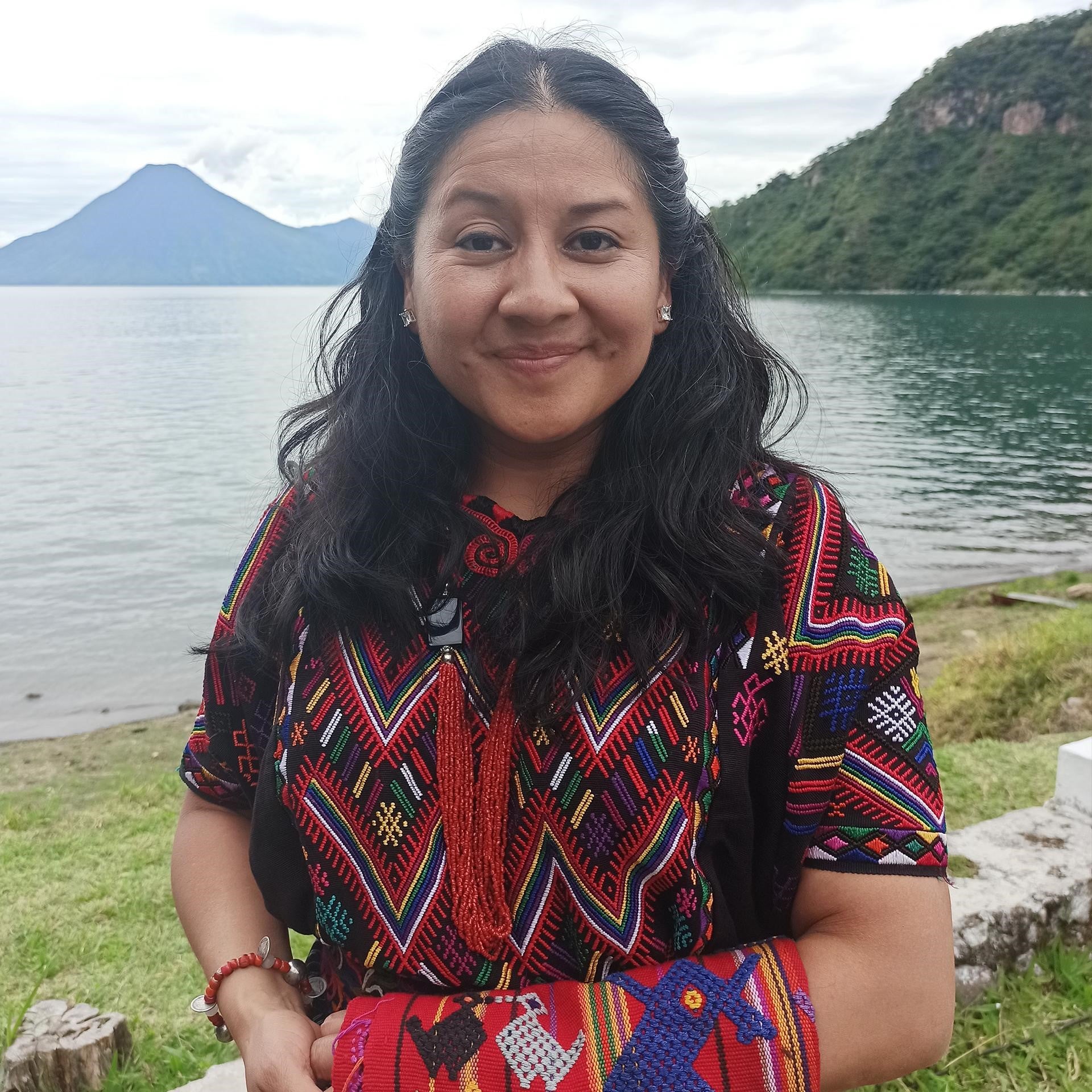
Avexnim Cojti (Maya K'iche') is Director of Programs at Cultural Survival. Avexnim is from Chuwila, Guatemala. She is a sociologist and a Maya calendar ancient knowledge keeper from her community. She has more than 15 years of experience in the fields of immigration and multiculturalism, Indigenous community development, and Indigenous rights. She has a degree in Indigenous Government Studies from the Institute of Indigenous Government, Vancouver, British Columbia, and a Master's degree in Public Administration from the University of Regina, both in Canada. Most of her experience is in managing or delivering programs and projects that aim to support the self-determination and rights of Indigenous communities globally.
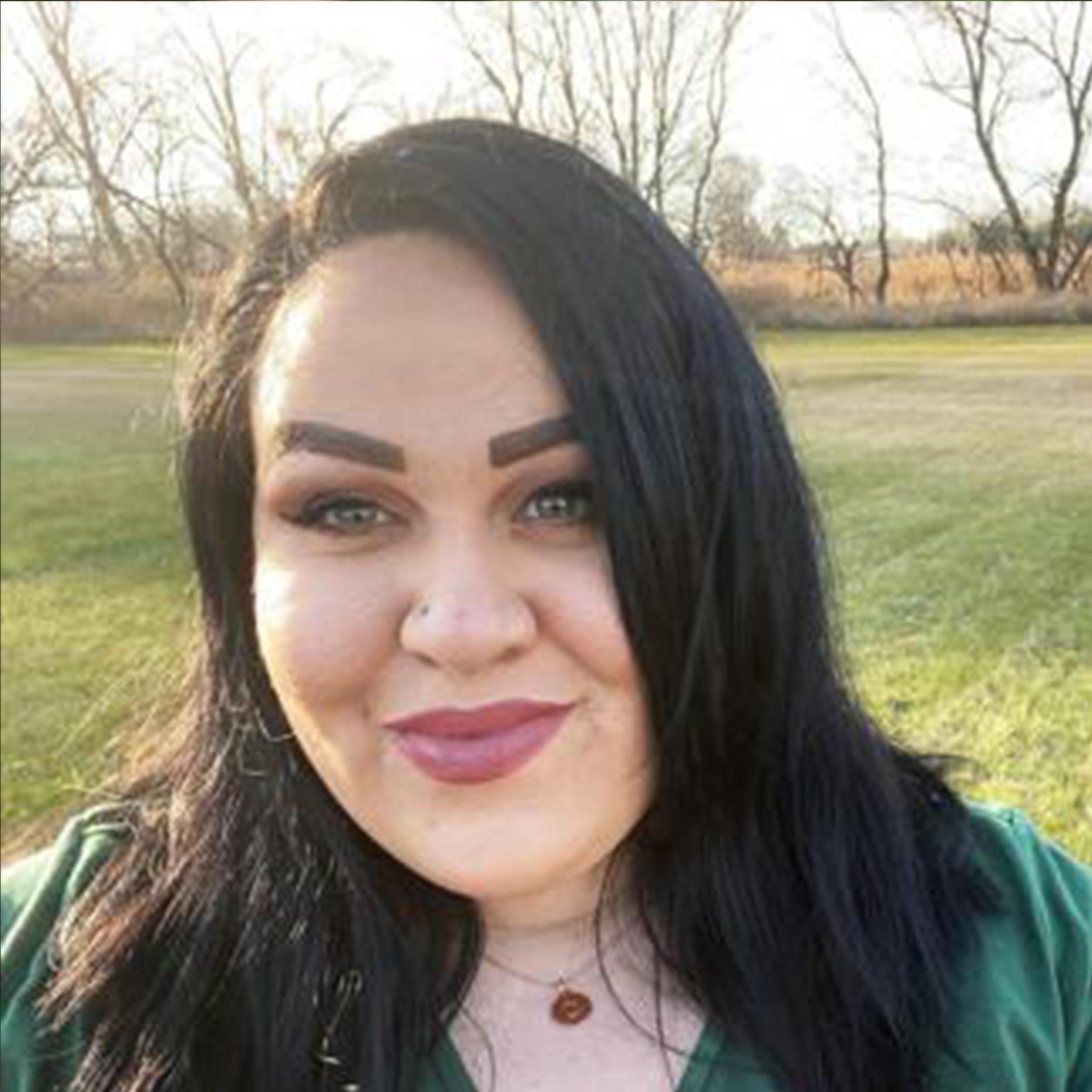
Daisee Francour (Oneida) is Cultural Survival's Director of Strategic Partnerships and Communications, comes to Cultural Survival with over a decade of experience working in philanthropy, at non-profit organizations, in grassroots organizing, and as a direct service provider in education, mental health, corrections, serving Indigenous Peoples with disabilities/special needs, domestic violence victims, the homeless, and formerly incarcerated inmates. Her experience has deepened her advocacy and movement-building work as a radical woman in philanthropy.
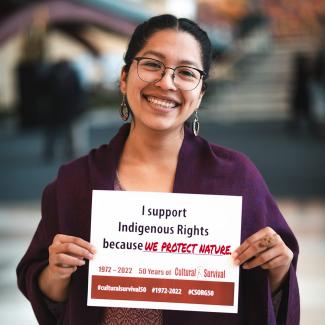
Bia’ni Madsa’ Juárez López (Mixe/Ayuuk ja’ay and Zapotec/Binnizá) is Cultural Survival's Program Manager of the Keepers of the Earth Fund and Bazaar Program Assistant at Cultural Survival. Born in the state of Oaxaca, Mexico, she grew up in two towns and cultures, Juchitán (Zapotec) and San José El Paraíso (Mixe). Since childhood, Bia’ni has been a part of the Indigenous resistance movement in Mexico and local social organizations. She is a biologist who loves to work with people. She received an undergraduate degree in biology from UAM-Xochimilco and has been working doing transdisciplinary research in her own Mixe community.
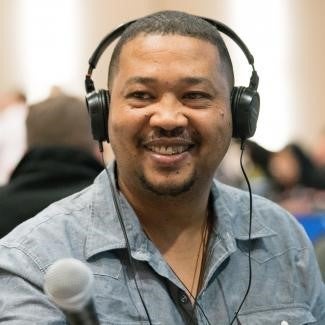
Shaldon Ferris (Khoisan) is Indigenous Rights Radio Coordinator at Cultural Survival. Shaldon started out in media by producing music videos. His work with Indigenous people started in 2006 after he went on a countrywide journey to document the origins of his family surname "Damakwa" which is a Khoi tribe of South Africa. On his paternal side, Shaldon’s San heritage can be traced to the Northern Cape, South Africa. His first film "Eldorado" premiered at the Durban International Film Festival and won an award in 2011. Shaldon became involved in radio when he started volunteering at his local community radio station, Eldos FM, eleven years ago in Eldorado Park in Johannesburg. Since then, his live show, “Cleaning Up The House,” which airs weekly on Saturday mornings, has won numerous awards and is the longest-running weekly show on Eldos FM. The show is built on interaction from the community based on current issues.
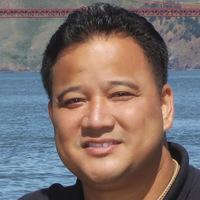
Kaimana Barcarse (Kanaka Hawaiʻi), Chair of the Board at Cultural Survival. A former Indigenous Rights Radio Producer for Cultural Survival, Kaimana has represented Cultural Survival at United Nations events in New York and Lima, Peru, and has produced dozens of radio programs. Kaimana is also the lead DJ of the Hawaiian language program "Alana I Kai Hikina" on KWXX-FM, the Hawaiʻi Island member of the state Board of Education, and the West Hawai’i Regional Director for Kamehameha Schools, whose mission is to improve the capability and well-being of Hawaiians through a healthy community ecosystem with a focus on education. Kaimana was the Director of the former Exploration Sciences and Voyaging Division of the 'Aha Punana Leo which utilized the wa'a (canoe) as a platform to strengthen the Hawaiian language skills and cultural traditions of its participants. He continues to educate and further his work on voyaging and navigation through his roles with the ʻOhana Waʻa, a board member of Nā Kālai Waʻa Moku o Hawaiʻi, a captain and on the leadership team of Honuakai, and as a member of the Polynesian Voyaging Society. Kaimana also serves as Chair of the Board of Directors at The Cultural Conservancy, Vice-President of the Hawaiʻi Council of the Association of Hawaiian Civic Clubs, and Hope Pelekikena of ʻAhahui Siwila ʻo Ke Aloha ʻĀina. He also serves on the Board of Education for the State of Hawaiʻi.
